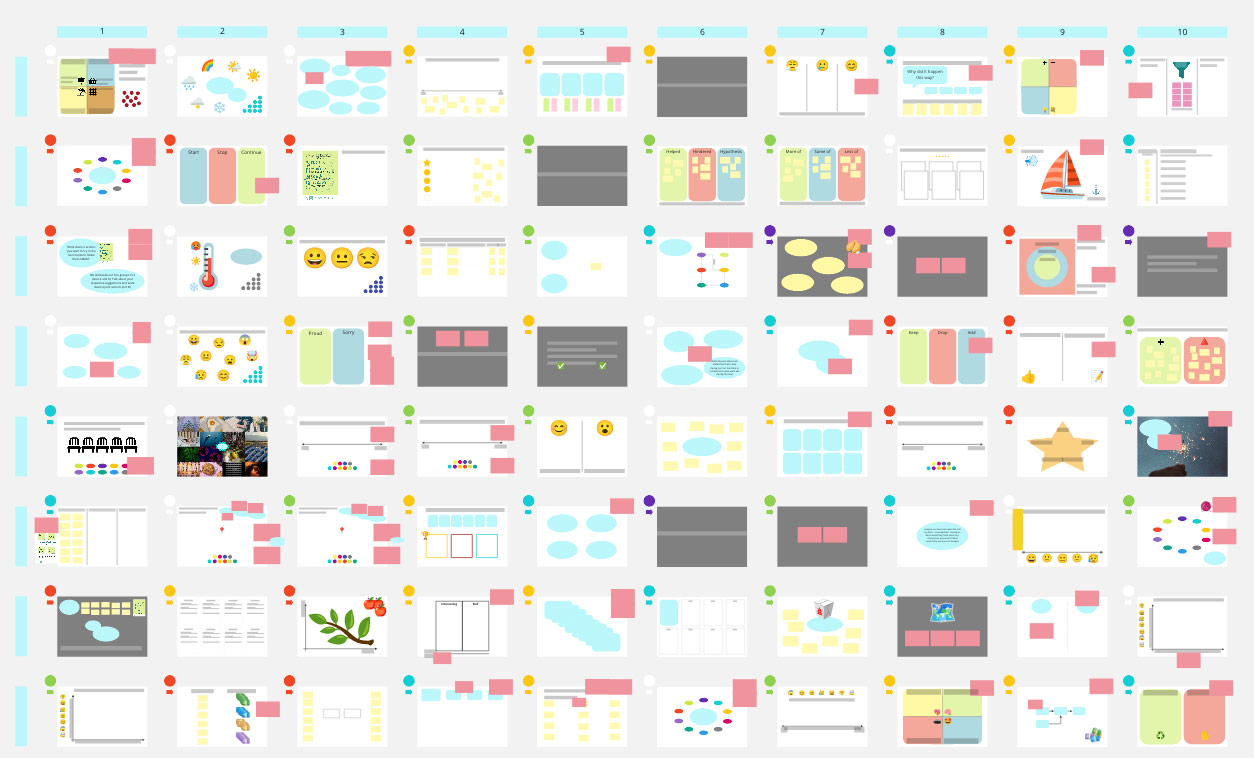Like to like
(#6)
Participants match quality cards to their own Start-Stop-Continue-proposals
Source:
Agile Retrospectives
Preparation: ca. 20 quality cards, i.e. colored index cards with unique words such as fun, on time, clear, meaningful, awesome, dangerous, nasty
Each team member has to write at least 9 index cards: 3 each with things to start doing, keep doing and stop doing. Choose one person to be the first judge. The judge turns the first quality card. From their own cards each member chooses the best match for this word and places it face down on the table.The last one to choose has to take their card back on their hand. The judge shuffles all submitted cards, turns them one by one and rules the best fit = winning card. All submitted cards are discarded. The submitter of the winning card receives the quality card. The person left of the judge becomes the new judge.
Stop when everyone runs out of cards (6-9 rounds). Whoever has the most quality cards wins. Debrief by asking for takeaways.
(Game is based on 'Apples to Apples')



